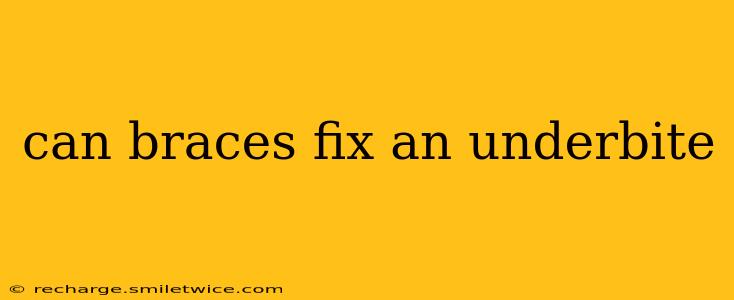An underbite, also known as Class III malocclusion, is a common dental condition where the lower jaw protrudes beyond the upper jaw. Many individuals wonder if braces can correct this misalignment, and the answer is often yes, but it depends on several factors. This comprehensive guide will delve into the intricacies of underbite correction with braces, addressing common questions and concerns.
What Causes an Underbite?
Understanding the underlying causes of an underbite is crucial to determining the best treatment plan. Several factors can contribute to this condition, including:
- Genetics: A family history of underbites significantly increases the likelihood of developing one.
- Jaw Growth: Disproportionate growth of the lower jaw compared to the upper jaw can lead to an underbite.
- Thumb Sucking: Prolonged thumb sucking, especially past the age of 4, can exert pressure on the developing jaws, contributing to misalignment.
- Tongue Thrusting: Habitual pushing of the tongue against the teeth can also affect jaw growth and alignment.
- Early Tooth Loss: Loss of baby teeth prematurely can impact the development and positioning of permanent teeth, potentially leading to an underbite.
How Do Braces Correct an Underbite?
Traditional metal braces, ceramic braces, and even Invisalign aligners can be used to treat underbites. The specific approach depends on the severity of the condition and the individual's age. Braces work by gradually applying gentle pressure to shift teeth and, in some cases, influence jaw growth. For more severe cases, additional procedures might be necessary.
Types of Braces for Underbite Correction
- Traditional Metal Braces: These are highly effective and often the most cost-effective option for underbite correction.
- Ceramic Braces: These are aesthetically pleasing as they are tooth-colored, but can be slightly more expensive.
- Invisalign: Clear aligners offer a discreet alternative, although they may not be suitable for all underbite severities.
Can Braces Fix an Underbite in Adults?
Yes, braces can be used to correct underbites in adults, although treatment might take longer than in younger individuals. The adult jawbone is fully formed, so the focus is primarily on tooth movement rather than influencing jaw growth. The duration of treatment can vary significantly depending on individual needs and the severity of the malocclusion.
What are the Alternatives to Braces for Underbite Correction?
In certain cases, surgery might be necessary in conjunction with or as an alternative to braces. Surgical intervention is usually reserved for severe underbites where orthodontic treatment alone wouldn't be sufficient. Surgeries may involve repositioning the jawbones to achieve proper alignment.
How Long Does it Take to Fix an Underbite with Braces?
The treatment time for underbite correction with braces varies widely. Factors like the severity of the underbite, the patient's age, and adherence to the treatment plan all influence the overall duration. It could range from a few months to several years.
What are the Costs Associated with Underbite Correction?
The cost of braces for underbite correction can vary significantly based on the type of braces used, the duration of treatment, and the orthodontist's fees. It’s recommended to consult with an orthodontist to receive a personalized treatment plan and cost estimate.
Are there any Risks or Side Effects Associated with Underbite Correction?
While generally safe and effective, underbite correction with braces can have minor side effects. These include temporary discomfort, irritation of the gums and cheeks, and potential for enamel erosion if proper oral hygiene isn't maintained. Discuss potential risks and side effects with your orthodontist during your initial consultation.
This information is intended for educational purposes only and does not substitute professional medical advice. Always consult with a qualified orthodontist to determine the best treatment plan for your specific situation.
